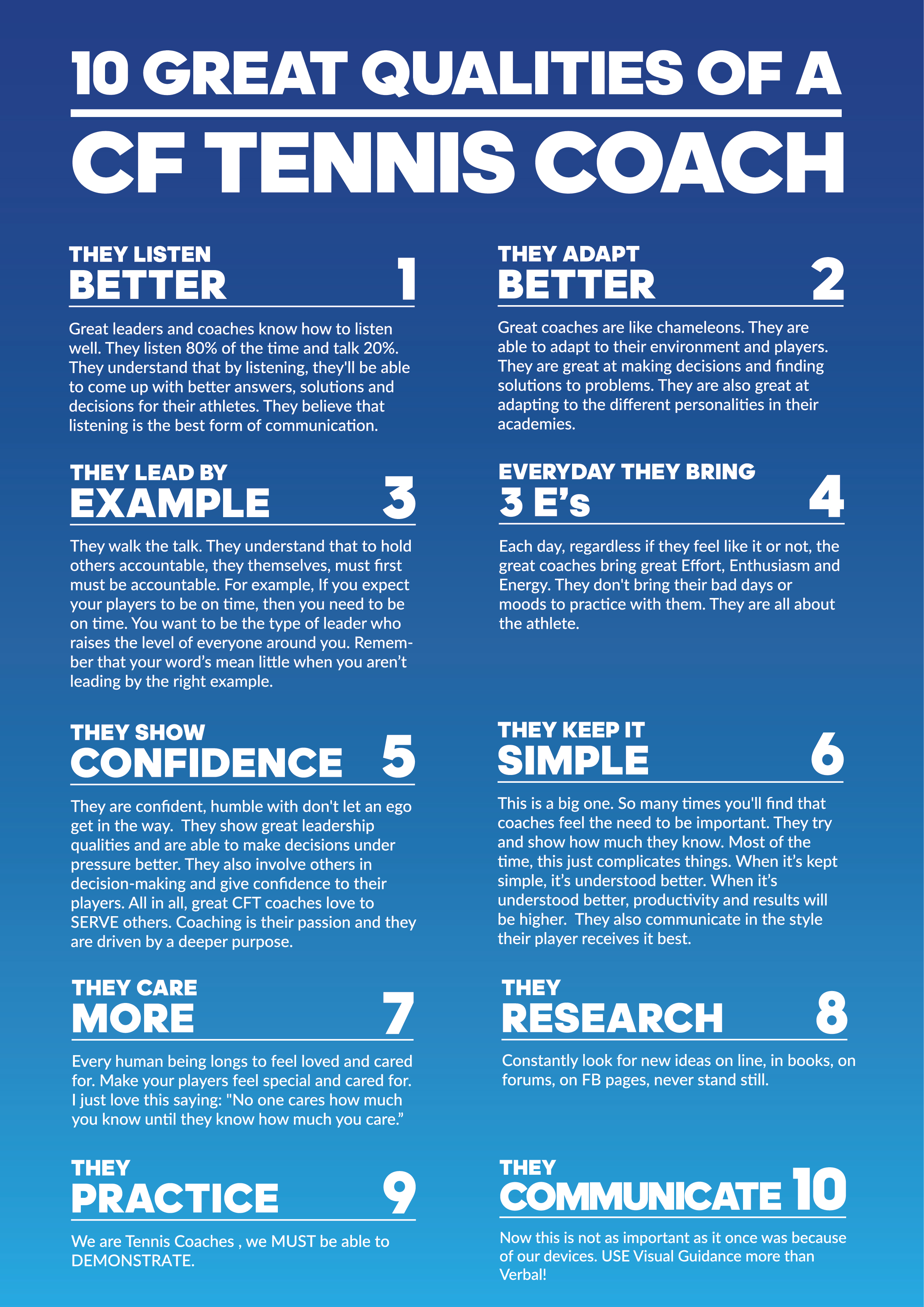How to choose your Childs’ Tennis Coach
When choosing a sports coach for your child, it is important to exercise caution and consider their qualifications and coaching background. Just like we carefully select schools, tutors, and teachers for our children, the same level of consideration should be given to their sports activities. Ensuring that your child participates in a safe and supportive environment is crucial. By inquiring about the coach's expertise, experience, insurance coverage, and resources, you can verify their ability to provide effective and proactive coaching.
This blog will outline the reasons why it is important to ask questions and how it contributes to your child's overall development. At CF Tennis Academy we are committed to educating parents and tennis players alike why these credentials matter and ensure a safe, fun and a nurturing, inclusive environment.
When engaging with a tennis coach in the UAE, it is important to inquire about their registration status with the UAE Tennis Federation. This ensures that the coach is credible and adheres to professional standards in the industry. If the coach is not registered, it is recommended to contact the club's Director, Owner, or Manager to understand why they employ coaches without proper certification and qualifications. Prioritising certified coaches is crucial for maintaining the integrity and quality of tennis coaching in the UAE.

I would like to share a few more guidelines to help you along the way:
1. Ensuring Safety:
Coaches' qualifications: Inquiring about a coach's qualifications allows you to assess their knowledge and expertise in the specific sport. A well-qualified coach will have received proper training and certification, ensuring they are equipped with the necessary skills to teach your child safely.
Past coaching history: Understanding a coach's past coaching experience provides insight into their ability to handle different situations effectively. It allows you to gauge their track record in creating a safe environment for children and addressing any potential risks or challenges that may arise during lessons.
Insurance coverage: Asking about a coach's insurance coverage is essential for protecting your child's well-being. Verifying this information ensures that your child is protected in case of any unforeseen incidents. Your coach should also have a valid first aid training certificate.
2. Nurturing Environment:
Teaching methods: Inquiring about a coach's teaching methods helps you understand how they approach coaching and whether it aligns with your child's learning style and needs. A good coach will employ various techniques to engage children, promote teamwork, build confidence, and foster a positive learning environment.
Communication skills: Effective communication between coaches and their students is vital for successful training. By asking about a coach's communication style, you can ensure that they are capable of conveying instructions, providing constructive feedback, and addressing any concerns or questions your child may have.
Child development knowledge: Is crucial for coaches as it allows them to customise their coaching methods based on the age group they are working with. By having a deep understanding of child development, coaches can create lesson plans and set goals that are suitable for the specific physical and cognitive abilities of the children they are coaching. This ensures that the training provided is appropriate and aligned with the child's capabilities. For example, it would not be ideal to have a coach who specialises in teaching adult tennis instructing a 5-year-old child.
3. Proactive Coaching:
Continuing education: Inquiring about a coach's commitment to ongoing education and professional development demonstrates their dedication to staying updated with the latest coaching techniques, safety protocols, and best practices. Coaches who actively seek opportunities for growth are more likely to provide high-quality coaching experiences for your child.
Equipment and facilities: Asking about the tools, equipment, and facilities available for training sessions is crucial for ensuring your child's safety and optimal learning experience. Coaches should have access to appropriate equipment that is well-maintained and suitable for the age group they are coaching.
Code of conduct: Inquiring about a coach's code of conduct or philosophy helps you understand their values and expectations. A coach who prioritizes respect, fairness, and sportsmanship will create a positive environment where children can thrive both athletically and personally.
It is important to remember that most coaches offer trial sessions and provide receipts for lesson payments. Asking questions about your children's sports coaches is crucial to ensure their safety and well-being. By actively showing interest in your child's coaching environment, you can help create a positive and nurturing space for them to learn and grow. It is advisable to be cautious of untrustworthy individuals and freelancers.
When it comes to your children's education, whether it be in sports or academics, it is essential not to take any risks. Reputable coaches appreciate being questioned.



